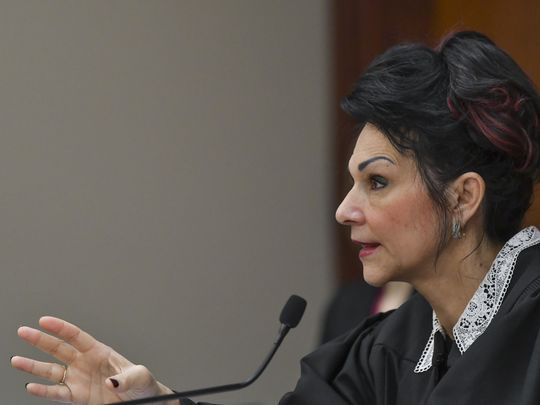King, Corley, Vance Reach Plea Deal, May Avoid Jail Time in Sexual Assault Cases
By Matt Mencarini
Ingham County Assistant Prosecutor Steve Kwasnik said the victim had been consulted and approved of the terms of the plea agreements. In a statement released Wednesday evening, in which King, Corley and Vance were not specifically named, Ingham County Prosecuting Attorney Carol Siemon said the seduction charge provides an incentive in a plea agreement because conviction on that charge does not require that the defendant register as a sex offender. "We must have a legal framework that allows us to treat the facts of each criminal case proportionately, which the current laws sometimes make difficult," she said in the statement. "For cases that are submitted for our review, we look at multiple factors to try to craft an outcome that reflects the facts of the individual event. "The use of 'seducing and debauching an unmarried female' as a plea is one that prosecutors have used consistently, but infrequently in the State of Michigan. The law itself is archaic and while the statute itself is valid, it certainly was originally enacted in a bygone era." See Sieman's full statement at the end of this story. Shannon Smith, King's attorney, declined to comment. Mary Chartier, Vance's attorney, said the plea agreement for her client speaks for itself. She declined to comment further. John Shea, Corley's attorney, said he expects the sentencing hearing will follow what was described in the plea agreements.
The seduction charge is a felony with a maximum sentence of up to five years in prison. It involves seducing an unmarried woman for sexual acts. Under the agreement, King, 20, of Darien, Illinois, also pleaded guilty to a charge of surveilling an unclothed person. He originally faced the most serious charges: one count of first-degree criminal sexual conduct, one count of third-degree criminal sexual conduct and capturing an image of an unclothed person. He faced up to life in prison if convicted. Corley, 20, and Vance, 20, both of Detroit, had been charged with third-degree criminal sexual conduct. They each faced up to 15 years in prison if convicted. Michigan State University Police said at a hearing that led to the charges that the victim reported King invited her to "speak somewhere quiet," then "pulled" her into a bathroom and forced her to perform oral and vaginal sex; Corley and Vance were each accused of later forcing her to perform oral sex. Police also allege that King recorded himself having sex with the woman. The former players, who had been suspended from the team during the police investigation, were dismissed from the football team after they were charged in June. They also were dismissed from MSU following university Title IX investigations. A fourth former player, 20-year-old defensive end Auston Robertson, awaits trial on two counts of third-degree criminal sexual conduct in connection with a separate incident. Full statement from Ingham County Prosecuting Attorney Carol Siemon: When I began receiving media requests earlier today, I was at an event commemorating the life of Dr. Martin Luther King, Jr. on the 50th anniversary of his assassination. This anniversary is a reminder not only of how much has changed, but also in how much of his cause remains undone. Dr. King said that the arc of the moral universe is long, but it bends toward justice. But he didn’t mean that it happens automatically or that it doesn’t require us to work and change the system. We must have a legal framework that allows us to treat the facts of each criminal case proportionately, which the current laws sometimes make difficult. For cases that are submitted for our review, we look at multiple factors to try to craft an outcome that reflects the facts of the individual event. The use of “seducing and debauching an unmarried female” as a plea is one that prosecutors have used consistently, but infrequently in the State of Michigan. The law itself is archaic and while the statute itself is valid, it certainly was originally enacted in a bygone era. The plea to seduction is a tool that we have as prosecutors, but it is an imperfect tool. It allows the criminal justice system to acknowledge the victim, and it provides an incentive for that offender to plea, in particular because it’s not an offense that requires that they register as a sex offender. The sex offender registry is a blunt instrument that I believe needs to be reformed and streamlined so that law enforcement can make better use of the information. It would be more effective as a law enforcement tool to keep the public safe if it targeted the cases that are most likely to result in recidivism – child abuse and child sexual assault, for example, or serial rapists. The sex offender registry is just one example of the types of cases where we have laws that are well-intentioned, but go too far from their original intent – and don’t allow our courts to provide a proportionate response. We have seen people sentenced to a 40 year maximum sentence over one gram of cocaine or parents who are charged with child neglect for letting their kids walk home from the park. In the recent cases of school threats and bomb threats, for example, we’re working to create a proportionate response that gives us the legal tools and range of options that addresses the individual situation. In any case of domestic or sexual violence, we believe that it’s just to not only consult with the victim, but to create a real consensus with that victim, whenever possible, about the resolution of their case. I’m not able to comment about any case that’s sealed under YTA, but I can confirm that we consult with the victims/survivors in all cases of this sensitive nature. The Holmes Youthful Training Act (YTA) is another imperfect tool that is available to prosecutors, defendants, and the courts. We know that the brain is still developing until a person is in their mid-twenties, yet in all too many cases, we have seen young persons incarcerated offenses, for decades, if not life – and burdened with a felony conviction. YTA is a tool that can be used to stem the epidemic of mass incarceration and create sentencing reforms that handle each case in an appropriate manner. Under Michigan law, prosecutors have a great deal of discretion in the sanction that each offender receives. Prosecutors decide whether to issue charges, and if so, often have multiple options. Once a case is charged, pleas can be offered at the prosecutor’s discretion. It’s my belief that prosecutors can work to reform the system from within. At an early age, children are taught to recite the promise of America: “Liberty and justice for all.” If they have to say it, then we have to do it – Do our best to provide justice to all, and use the law to do what we should do, not just what we can do."
|
.
Any original material on these pages is copyright © BishopAccountability.org 2004. Reproduce freely with attribution.

